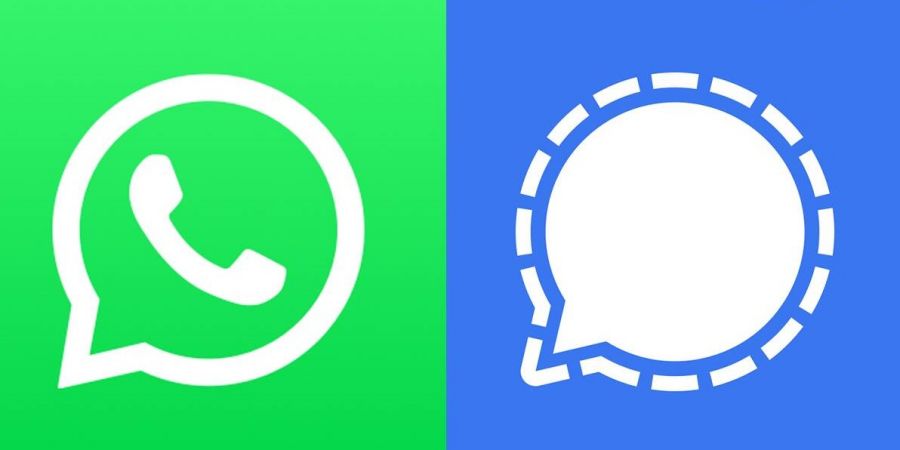

We'll compare the security and features of these two instant messengers, and Let's see which app is your favorite.
1. Security
First and foremost, I'd like to address security, which is the most controversial and debatable point between both the messaging services. So, in this battle against Signal, let's start with Signal security model.
Signal
When it comes to security, Signal is by far the safest, whether on the backend or on the user-facing side of the business. Signal offers end-to-end encryption using the open-source Signal Protocol. Signal went one step further by encrypting metadata as well. Signal developed a unique mechanism to communicate between the sender and the recipient called Sealed Sender to protect user privacy from all aspects. Basically, no one will be able to tell who is communicating whom with Sealed Sender, which is incredible.
WhatsApp's end-to-end encryption is one of its strongest features. So all of your WhatsApp messages, video calls, voice calls, photos, and other data are encrypted end-to-end. That implies that the only individuals who can read the communications you send to them are you and your recipient. WhatsApp has been unable to decrypt the contents of your messages, calls, photos, as well as other communications, ensuring your security and privacy.
2. Features
Let's compare the characteristics of these two apps to discover which one provides the greatest value to its customers.
WhatsApp has a feature that allows you to have group chats with up to 256 people. You can also broadcast messages to multiple contacts at the same time. Voice and video calls are also supported for both individual users and groups. However, you can only have 8 individuals on a group video call at any given moment. They have a unique feature that does not work with Signal. Yes, I'm referring to WhatsApp Status. Users enjoy this feature since it allows them to communicate their emotions to their loved ones.
You can transfer any type of file via WhatsApp, however there are file size restrictions. The maximum file size for images, videos, and audio files is 16 MB. Documents can, however, be up to 100 MB in size. You can also send your contacts live location updates. WhatsApp also offers seamless backup and restoration functionality using cloud services like Google Drive and iCloud, as it is designed for common users. WhatsApp now has a dark mode option.
Signal
Signal easily outperforms WhatsApp in terms of security, but it falls short in terms of features. All conversations are end-to-end encrypted, including secure messaging, voice, and video calls. You can also establish groups, but you cannot send messages to numerous contacts at the same time. Signal has also just implemented group calling capabilities, which was previously unavailable in the app. You can send disappearing messages, which are similar to Telegram's self-destructing messages, as well as a one-time viewable image.
Note to Self is Signal's best feature in my opinion. To send notes to yourself, unlike WhatsApp, you do not need to create a single-member group. Aside from that, Signal allows you to send voice calls to its servers, hiding your identity from your contacts. The feature works in a similar way to a VPN. Signal also has an option to disguise your IP address built in. You may also use Signal's robust photo editor to activate incognito keyboard while typing, apply dark mode, remove old messages in one stroke, and blur faces and private information from images.
The Final Thought: WhatsApp vs. Signal
After going over everything, it's clear that Signal is extremely secure and private. If you value your privacy above all else, Signal is the way to go. When it comes to E2E encryption, WhatsApp is fantastic. With the new privacy policy, however, I am finding it increasingly difficult to recommend WhatsApp to others.


